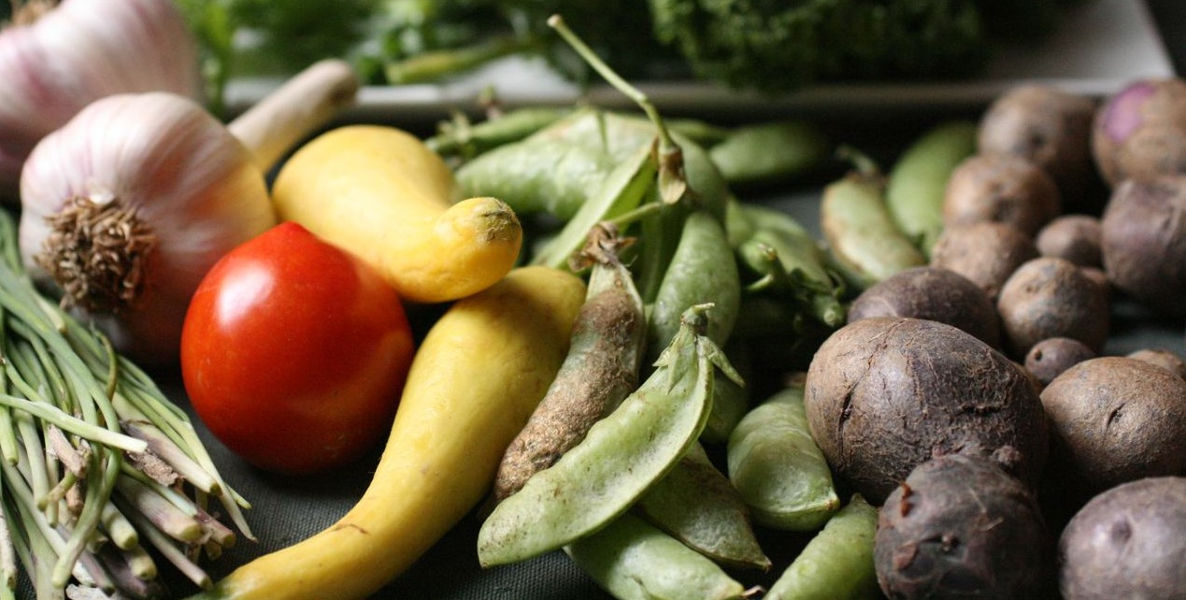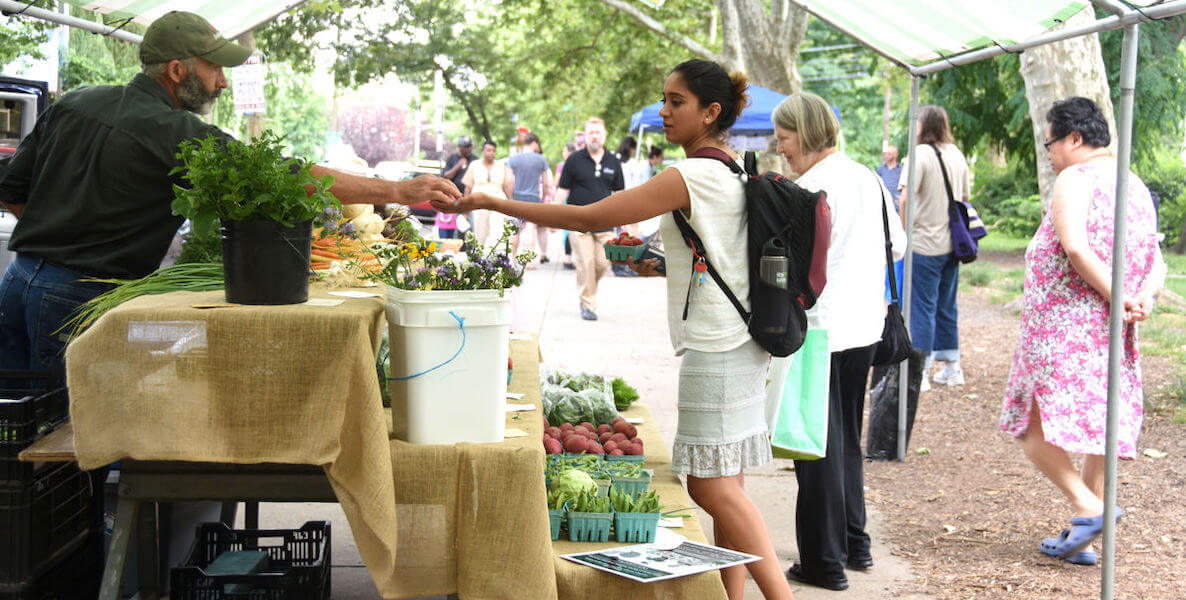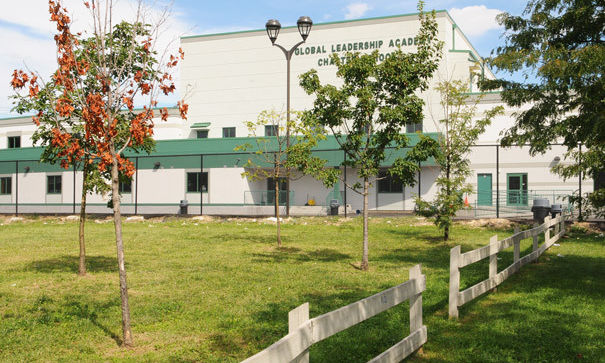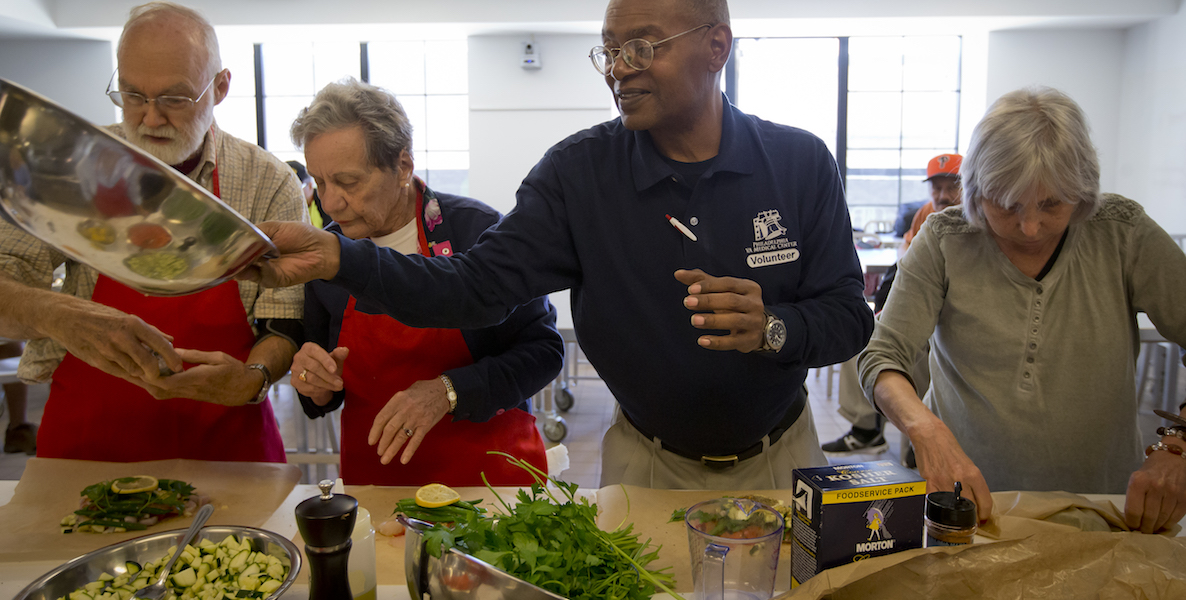An estimated 500,000 Philadelphians, including 25 percent of black residents, lack some sort of basic literacy. This affects them in any number of ways—some can’t fill out work applications, others can’t balance a checkbook, still more can’t properly use a computer or type at a reasonable rate. That’s why for years, the Philadelphia Free Library, along with the city, has participated in programs citywide to teach adults and children how to read.
Now the Library has taken on another, less expected, form of literacy: Nutritional. At the Free Library’s three-year-old Culinary Literacy Center, participants learn how to read recipes, use the techniques in the recipes and understand the math in the recipes. In short—very short—they learn how to cook.
But it is about more than just cooking, says Liz Fitzgerald, director of the Culinary Literacy program. “There are opportunities across the board to interact with Philadelphians from all backgrounds,” she says.“There is an opportunity—where literacy and culinary literacy intersect—to really reach people here.”
Before 2014, Fitzgerald, a librarian with the system, had led library-hosted cooking and culinary literacy classes using, she says, a hot-plate. Then the library, in June 2014, built a fully-fledged, fully-equipped educational kitchen, capable of hosting everything from haute cooking exhibits to classes for low-income Philadelphians, at the main branch of the Free Library.
Fitzgerald was put in charge of the Culinary Literacy program with little direction. As she puts it, she was handed a folder with some preliminary contact information, given full control of the kitchen and told to make it happen: “I think on, like, my second day I had a meeting with external affairs and one of the community partnerships we had at the time, and they both turned to me and said ‘So Liz, what is it you want to do here?’”
Stories about foodRead More
“Philadelphia is a city that has a lively community around food justice, food access and nutritional health,” she says. “Once things were moving, it was pretty easy to find the people who have been doing that work.”
Prior to running the Culinary Literacy Center, Fitzgerald managed a library branch in West Philadelphia. She has been doing food programming with the Library for 10 years, she says, from the time that she graduated with her Library and Information Sciences master’s degree. “I used to do demonstrations in a classroom with a cutting board and a pan and a couple of bowls, and now we have a real, professional-grade classroom,” she says.
“The community needs to be the heart of the library,” says Fitzgerald. “And I think about my home, about homes that I’ve been in, and the kitchen is so often the heart of a home. It’s where everyone gathers.”
The Culinary Literacy Center itself is part of an expansion of the Free Library’s goal, shifting from a library system to an all-purpose educational megalith. It has “literacy” programs for all different kinds of life experiences, from technology to health to politics. As Adam Feldman, coordinator of the Parkway Central Library puts it: “Everything that you experienced in preschool, elementary school, high school, after school, college, university, conservatory, professional school, and adult continuing ed happens at the library, but perhaps in a slightly more democratic, less coercive fashion.” The library holds events ranging from interfaith discussions to tax clinics to ESL classes to comic conventions; in Fiscal Year 2016, the library system held more than 2,700 events in total.
Two years after its founding, the Culinary Literacy Center is fulfilling its primary goal of improving the culinary skills of Philadelphians of all socioeconomic backgrounds, as well bettering their understanding of good nutritional habits. Tickets for classes, according to Fitzgerald, range in price from free to $35. (Tickets are free for people in the SNAP program.) On top of that, the Culinary Literacy Center gives daytime classes to disadvantaged groups, offering nutritional and culinary education, free of charge, to veterans, ESL Philadelphians and those with intellectual disabilities. Meanwhile, the Culinary Literacy Center is actually rather subversively improving library attendance and literacy overall. The classes, Fitzgerald says, are largely attended by people ages 20 to 40—who she says rarely visit libraries—and offer a chance for librarians to foist library cards on attendees. Still, she adds, there is work to be done—particularly in getting people from diverse economic standings involved in the night classes.
Learn to cookDo Something
“Being culinarily literate is a hugely important part of life as a human, because everyone needs to eat,” she says. “As schools don’t really teach cooking classes anymore, the Culinary Literacy Center wants to help people to feed themselves in ways that can be affordable and accessible.”
Fitzgerald says that the program is set to expand to satellite libraries around Philadelphia, which will help fulfill its goal of democratizing high quality culinary and nutritional education. The feedback from participants has been overwhelming, and the Free Library is bringing in academics to study the overall impact of the Culinary Literacy program. (Part of what the researchers will track is number of participants, which Fitzgerald says she hasn’t done so far.) The Center, she says, is more about community than anything.
“Libraries are the heart of the community. But recently I heard a colleague say that the community needs to be the heart of the library. And I think about my home, about homes that I’ve been in, and the kitchen is so often the heart of a home. It’s where everyone gathers when you have a party, it’s where we feed ourselves and our families, it’s where we cook together and eat together,” she says. “I see the Culinary Literacy Center as a space with the community at its heart.”
Photo header: Free Library of Philadelphia





